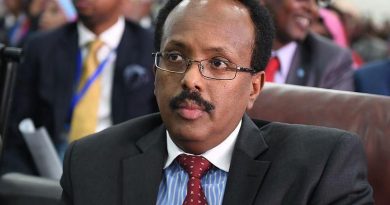FOCUS on Global Ceasefire/Peacemaking Efforts: Russia/Ukraine
Kasia Kostraba
Staff Writer
The Russo-Ukrainian War has been waging on for over 2 years with no end in sight, capitalized by the recent reelection of Russian President Vladimir Putin. While many scholars believe the Russian campaigns in Ukraine will only stop if Putin is ousted, increasing calls for ceasefire, both in the warring nations and from the international community have surfaced in recent months. These calls come from a multitude of angles but have given some hope about the war coming to a close.
French President Emmanual Macron recently that a ceasefire “will be requested” during the upcoming Paris Summer Olympics, according to Reuters. Ceasefires during the Olympics Games are traditional, due to the symbolic unity of nations during the competitions.
Putin has signaled he is open to Macron’s request, stating “we are for peaceful negotiations, but not because the enemy is running out of ammunition. We are for it, if they really seriously want to build peaceful, good neighborly relations between the two states in the long term, instead of taking a pause for one and a half or for two years to rearm,” according to Euronews.
The International Olympic Committee (IOC) condemned Russia’s all-out invasion in February 2022, which occurred just a few days after the conclusion of the Beijing Winter Olympic Games. While Russian and Belarussian athletes are not completely blocked from competing at this Summer’s Olympics, they must compete as Individual Neutral Athletes (AINs), and their eligibility is to be reviewed by the IOC’s Executive Board.
Additionally, Pope Francis was recently criticized for saying that the Ukrainian people should have the “courage to raise the white flag” and negotiate with Russia, as reported by The Guardian. Many believe these words signal a pro-Russia rhetoric from the Pope, despite the extreme human rights abuses and kidnappings carried out by Russian in Ukraine. While Ukraine’s struggle on the battlefront is widely recognized, so are the moral and international sovereignty issues of Russia’s attempt to absorb Ukrainian land. Many feel that seeing a figure who is supposed to advocate for peace and unity telling Ukraine to give up and negotiate on Russian terms is disheartening.
Turkish President Tayyip Erdogan announced an offering to host a summit between Russian and Ukrainian leaders shortly after a meeting with Ukrainian President Volodymr Zelenksyy in Istanbul. While Zelenskyy welcomed the offer, he stated that he believes that peace between the nations will not include any loss of Ukrainian territory to Russia, as well as the withdrawal of all Russian troops from Ukrainian territory and the allowance of the nation to restore its own state borders. Unsurprisingly, the Kremlin has ruled out any peace talks that consider Kyiv’s proposed terms, according to Reuters.
In February, however, Putin sent signals to Washington that he was ready to consider a ceasefire on the condition that the conflict freezes on the current lines, refusing to cede any territory to Ukraine, says Reuters Washington rejected these signals, stating that they refuse to discuss ceasefire negotiations without the participation of Ukrainian officials. Former Russian President, Prime Minister, and close ally to Vladimir Putin, Dmitriy Medvedev considers Ukraine a part of Russia, ruling out any peace talks that consider Zelenskyy and Kyiv’s input. Medvedev now serves as the Deputy Chairman of Russia’s Security Council, adding to his long resume serving the Russian government and Putin Regime. At a youth festival in Sochi, he stated that Russia would continue to carry out “special military operations” until the other side capitulated, Al Jazeera reports.
While the volume of talks regarding ceasefire in the Russo-Ukrainian War have increased, their effectiveness has been limited. The Kremlin’s unwillingness to negotiate with Ukraine upholds the reality that Russia will continue to threaten the sovereignty of other nations until they are barred from doing so. In the coming months it will be worth looking towards the Olympics, which are often globally recognized as a time of peace, to see if and how negotiations play out.
Image courtesy of Getty Images


